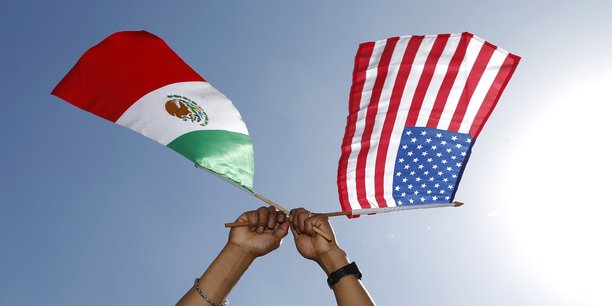American officials have taken the “highly unusual” step of rejecting Canada’s bid to take part in senior-level NAFTA talks between the U.S. and Mexico later this week, sources familiar with the trade negotiations said Monday.
One person said attempts by Foreign Affairs Minister Chrystia Freeland to get a seat at the table in Washington Thursday were either ignored, or spurned outright by the office of U.S. Trade Representative Robert Lighthizer.
Another source said the request to be at the meeting was made in a low-key fashion “so as not to spark a diplomatic incident” and was followed by “a retreat to diplomatic silence.”
Lighthizer is scheduled to meet Economy Minister Ildefonso Guajardo of Mexico after similar bilateral meetings between the officials last week made significant progress, analysts say.
Canada’s apparent sidelining follows Lighthizer’s recent comments that he hoped to strike a separate deal with Mexico, then use that as pressure to win compromises from Canada.

“It is highly unusual, after more than a year of three-party talks, for Canada not to participate in the new discussions between U.S. and Mexican negotiators,” said Chris Sands, head of the Center for Canadian Studies at Johns Hopkins University.
Indeed, recent developments point to a steady souring of relations between Ottawa and the White House. Formal, three-way talks to revamp the North American Free Trade Agreement have not been held since May, though had been expected to restart after the Mexican presidential election earlier this month.
A third source briefed on the negotiations said the U.S. side, fuelled in part by Lighthizer’s dislike of Freeland, has decided to not even let Canada back into the process until it makes some kind of substantive concession.
Canadian officials have been waiting until talks enter the final stages before making such a move, but President Donald Trump’s representatives expect an overture sooner, said the source.

“Until Canada signals to the White House or tells them even privately ‘We’re going to give you something that you want,’ they’re going to be on the outside looking in,” said the person, citing private discussions with administration officials. “The negotiating style of the Trump administration is so kind of balls to the wall, just being prepared to sit down earnestly and roll up your sleeves isn’t close to enough at this stage.”
Lighthizer’s office did not respond to requests for comment.
Alex Lawrence, a spokesman for Freeland, said late Monday only that Canada is committed to modernizing NAFTA “while standing up for Canadian interests.”
“We will continue to work toward a good deal for Canada,” he said.
A Canadian official familiar with the negotiations said they were not aware of any request by Freeland to be part of Thursday’s meeting, and called reports of breakthroughs in the Mexico-U.S. talks a positive sign that Canada welcomes.
Meanwhile, Freeland and Lighthizer have continued to talk on the phone as part of a process that has always involved both two-way and three-way communication, stressed the official, who is not authorized to speak on the record.

Mexico’s economy minister Ildefonso Guajardo is set to meet Lighthizer on Thursday, after progress was made last week on U.S. demands to increase the level of U.S. content in cars it imports from Mexico.
At a U.S. Senate committee hearing last week, the top American trade negotiator said he hoped to have an agreement with Mexico soon and that “Canada will come in and compromise” as a result, something he said it had largely failed to do so far.
That Freeland will not be at Thursday’s meeting is typical of what’s happened since the last formal NAFTA talks two months ago, says Flavio Volpe, president of the Canadian Automotive Parts Manufacturers Association.
“I know that Canada continues to implore the Americans to get the table restarted, but as of yet, they’ve been rebuffed,” he said. “We really have been pens-down from a trilateral point of view since May.”
The source who cited the American expectation that Canada offer some kind of significant offer to get talks going again, said the situation is not helped by Lighthizer’s apparent enmity for Freeland.
That ironically stems from the much-touted Canadian charm offensive, which saw various politicians meet with members of Congress, who have in turn frequently criticized Trump’s approach to trade.
“In his mind, she went around his back all over Capitol Hill,” said the person. “Their whole charm offensive, which I think was a good idea, Lighthizer views as an end-run.”
Still, it appears the White House — like Mexico and Canada — still wants a trilateral agreement, said Dan Ujczo, an Ohio-based trade lawyer in close contact with the administration.
The current fixation on Mexico is mainly an attempt to take advantage of that country’s eagerness to make a deal during the transition to a new president — not to isolate Canada, he said.



































